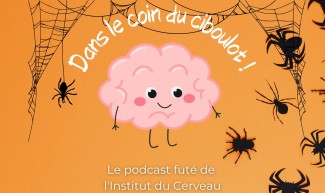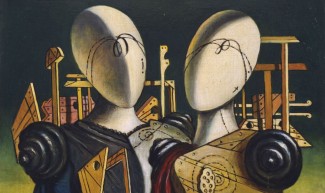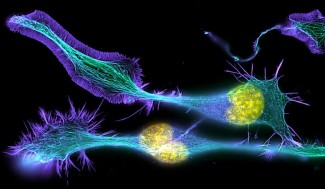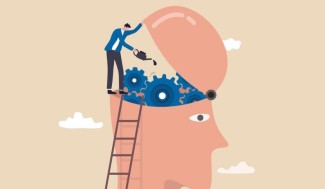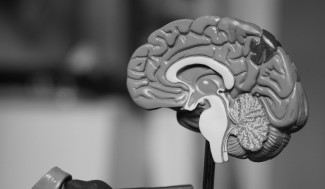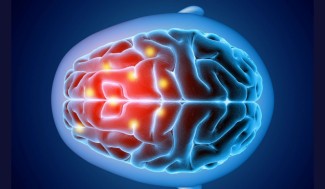In this episode, 9-year-old Marceau wonders if we can live with one part of the brain less.
Richard Lévy, neurologist and director of the "FrontLAB Functions and Dysfunctions of Frontal Systems" team at the Brain Institute, presents the functions of different parts of the brain through the famous story of Phineas Gage, who became famous despite himself because of an unfortunate accident that left a hole in his brain!
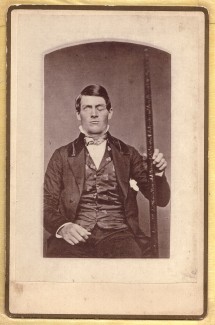
Une résilience Inattendue, mais des changements comportementaux profonds
Étonnamment, après l’accident, Phineas Gage n’a pas perdu conscience et a même pu marcher jusqu’à l’hôpital. Si, au premier abord, il semblait n’avoir aucune séquelle visible, les changements de personnalité qu’il a subis ont été spectaculaires. Avant l’accident, Gage était un homme respectueux, sociable et bienveillant. Après l’accident, il est devenu impulsif, colérique et parfois agressif. Ses proches ont rapidement remarqué que son comportement n’était plus le même et qu’il ne se contrôlait plus comme avant.
Ce changement radical de comportement a mis en évidence l'importance du lobe frontal, une région clé du cerveau. En effet, cette zone joue un rôle crucial dans la régulation des émotions, le contrôle des impulsions et la prise de décisions. La perte de cette région chez Phineas a perturbé son comportement et sa personnalité de manière significative, suggérant que cette partie du cerveau est essentielle pour la gestion de nos actions et de nos interactions sociales.
Le rôle crucial du lobe frontal : adaptation et contrôle des comportements
Le lobe frontal, situé à l’avant du cerveau, est responsable de nombreuses fonctions cognitives, telles que la planification, la prise de décision, l’attention, la gestion des émotions et l’adaptation sociale. La blessure subie par Phineas Gage a révélé que cette région est indispensable pour notre capacité à nous adapter à notre environnement social et à réguler nos comportements.
Avant l’accident, Phineas Gage était perçu comme un homme stable, responsable et respectueux. Cependant, la destruction de son lobe frontal a entraîné des comportements totalement opposés. Il a perdu sa capacité à évaluer les situations de manière rationnelle et à contrôler ses émotions, ce qui a affecté ses interactions sociales et professionnelles. Cet exemple extrême montre à quel point chaque zone du cerveau joue un rôle fondamental dans notre vie quotidienne.
Une blessure, mais pas une vie perdue : les autres zones du cerveau
Il est important de noter que le cerveau est un organe d’une incroyable complexité, composé de multiples régions interconnectées. Ainsi, bien que la perte d’une partie du cerveau, comme celle du lobe frontal chez Phineas, puisse avoir des conséquences dramatiques sur le comportement et la personnalité, d’autres régions du cerveau peuvent compenser certaines fonctions perdues. Cela démontre la capacité du cerveau à s’adapter, dans une certaine mesure, à la perte de certaines fonctions.
Cependant, la situation de Phineas Gage ne signifie pas que toutes les lésions cérébrales sont bénignes. La perte d’autres régions cérébrales peut entraîner des conséquences bien plus graves, comme des troubles moteurs, des pertes de la parole, ou même des défaillances des fonctions vitales, comme la respiration et la régulation du cœur. Ces fonctions sont régulées par des zones du cerveau essentielles à la survie, comme le tronc cérébral. La perte de ces fonctions rendrait une vie normale pratiquement impossible.
Les zones du cerveau et leur importance vitale : un réseau interconnecté
Le cerveau humain fonctionne comme un réseau complexe où chaque zone a un rôle précis et interagit avec les autres zones. Si une zone est endommagée, cela perturbe l’équilibre global du cerveau, car chaque région dépend des autres pour effectuer des fonctions cohérentes et adaptées. Par exemple, le lobe temporal, situé sur les côtés du cerveau, est responsable de la mémoire et de la compréhension du langage, tandis que le lobe occipital, à l’arrière du cerveau, est crucial pour la vision. Chacune de ces zones doit fonctionner en harmonie avec les autres pour que l'individu puisse mener une vie normale.
En cas de lésion ou de perte de certaines zones, le cerveau peut parfois compenser grâce à la plasticité cérébrale. Cette capacité du cerveau à réorganiser ses connexions et à redistribuer certaines fonctions vers d’autres régions permet à l’individu de récupérer certaines capacités. Toutefois, cette compensation n’est pas toujours complète, et des troubles peuvent persister, selon la gravité de la blessure.
Les avancées scientifiques grâce à l'étude des lésions cérébrales
L’histoire de Phineas Gage a ouvert la voie à des recherches approfondies sur le cerveau et ses fonctions. En étudiant des cas similaires, les neuroscientifiques ont pu identifier les différentes zones du cerveau responsables de comportements spécifiques, de la mémoire et des émotions. Aujourd’hui, ces connaissances permettent de mieux comprendre certaines pathologies neurologiques, mais aussi de développer de nouveaux traitements pour les maladies du système nerveux, comme Alzheimer, Parkinson et les AVC.
L’étude des lésions cérébrales et de leurs conséquences a également conduit à des avancées dans le domaine de la rééducation neurologique. Des techniques innovantes, comme la stimulation cérébrale profonde, visent à rétablir certaines fonctions perdues ou à atténuer les symptômes de troubles neurologiques. Les chercheurs de l’Institut du Cerveau, par exemple, poursuivent leurs travaux pour comprendre encore mieux le rôle de chaque région du cerveau et améliorer ainsi les traitements des maladies cérébrales.
Le but de l'équipe Frontlab est de mieux comprendre le rôle et l'organisation du cortex préfrontal dans le contrôle, l'activation et l'inhibition des comportements volontaires dirigés vers un but.
Read more
